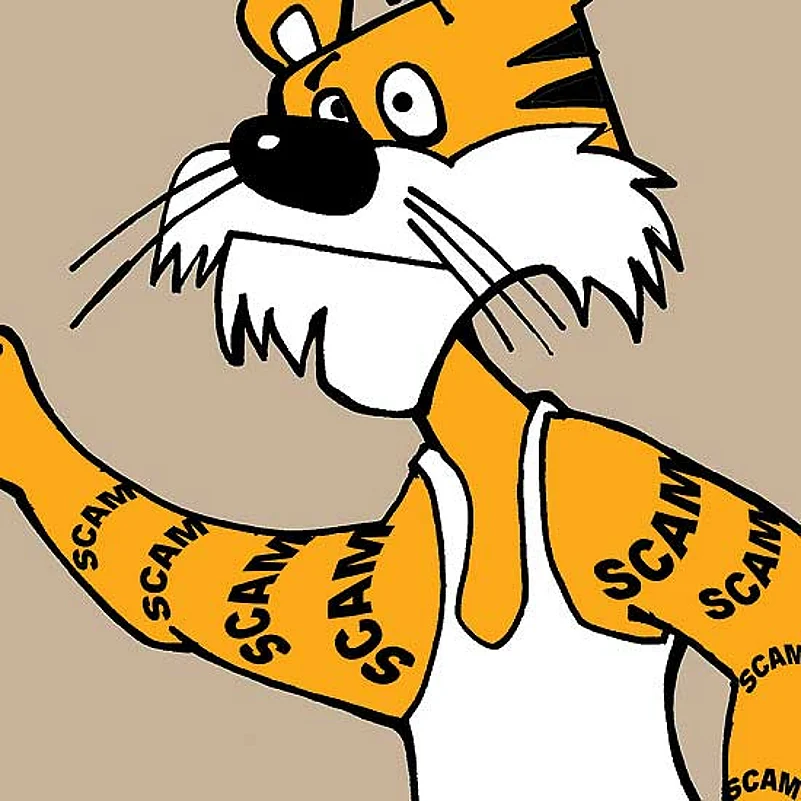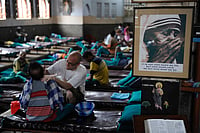Dear Mrs Gandhi,
Dr Manmohan Singh is believed to be one of the most honest prime ministers our country has had. But, ironically, he presides over arguably the most dishonest government machinery we have seen. The latest in the series of scams is the massive corruption in the Commonwealth Games. Despite charges of large-scale fund misuse and inefficient management, Suresh Kalmadi, almost defiantly, says he won’t step down till the PM or Sonia Gandhi asks him to do so. He seems to be confident that neither of you would ask him to step down!
The scale and arrogance of corruption in the Commonwealth Games is so bizarre that if it goes unpunished this time also, then there is no hope for this country. Both Dr Singh and you have said on several occasions that those involved in corruption in CWG will not be spared after the games. But which agency will investigate these cases?
The CBI? This is directly under the control of the central government. It runs almost like its department. It has been misused for political purposes almost by all successive governments and parties. With allegations against people and politicians in high places in the Commonwealth Games, it is highly unlikely that the CBI would be allowed to do an unbiased and honest investigation.
Then we have the Central Vigilance Commission (CVC), a toothless body. It has neither the resources nor the powers to investigate and prosecute. Despite this, it recently did a brilliant inquiry into some of the CWG projects. It found several irregularities. However, the CVC does not have the powers to take any action against the guilty. It can only make recommendations. It has already done that and no action has been taken against those identified. Because the people against whom action is proposed to be taken are either those who themselves have to decide whether to take action or not, or can influence decision-making. Further, the CVC does not have any jurisdiction over politicians. So, the CVC’s inquiries into CWG projects do not extend to the role of politicians.
To make matters worse, what can one expect from the new CVC, who himself boasts of a tainted past? One wonders whether he has been posted to effectively act against corruption or to scuttle the inquiries into the Commonwealth Games and the telecom corruption charges, and save the government a political embarrassment.
Besides the CBI and CVC, we have no other anti-corruption body at the Centre. So, who will investigate corruption in Commonwealth Games projects? The promises of effective action by you and Dr Singh simply do not inspire confidence.
The whistle-blower protection bill recently introduced in Parliament proposes to entrust the responsibility of investigating complaints of corruption from whistle-blowers and providing protection to them to the CVC. Obviously, whistle-blower protection is required in those cases where high-and-mighty politicians and bureaucrats are involved. Interestingly, the CVC does not have jurisdiction over politicians. And it merely forwards complaints against bureaucrats to the respective department heads to investigate and report back. So, if the head of the department himself is involved, what happens then? Such serious flaws render the proposed whistle-blower protection bill a showpiece legislation.
These critical deficiencies in our anti-corruption systems were discussed in a meeting on August 10 by none other than Karnataka Lokayukta Justice Santosh Hegde, former CVC P. Shankar, former chief election commissioner J.M. Lyngdoh, senior Supreme Court advocate Prashant Bhushan and others. Outgoing CVC Pratyush Sinha was present as an observer. Minutes of this meeting have already been sent to you earlier. According to this group, these critical deficiencies have rendered our entire anti-corruption systems ineffective.
Those who participated in the meeting made a series of excellent recommendations: Create a Lokpal at the Centre and Lokayuktas in states to deal with corruption. They should have jurisdiction over both bureaucrats and politicians. They should have resources and complete powers to entertain complaints, investigate them and prosecute the guilty. These organisations should not need approvals or permissions from anyone to initiate investigations and prosecutions. At the same time, they should themselves be transparent and accountable in their functioning. Their appointment should be through a transparent and participatory process.
When corruption reached its peak in Hong Kong in the ’70s, it created an Independent Commission Against Corruption and gave it complete powers. The commission sacked 103 out of 107 police officers in one go. That sent a strong signal to the entire machinery. Such swift and effective action is needed in our country also, immediately.
You created history by renouncing the chair of the prime minister. We urge you to create effective systems in our country to rid this country of corruption.
Yours sincerely, Arvind Kejriwal
Arvind Kejriwal is a Magasaysay award winner who works on issues of transparency and the right to information.























